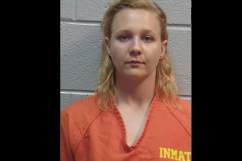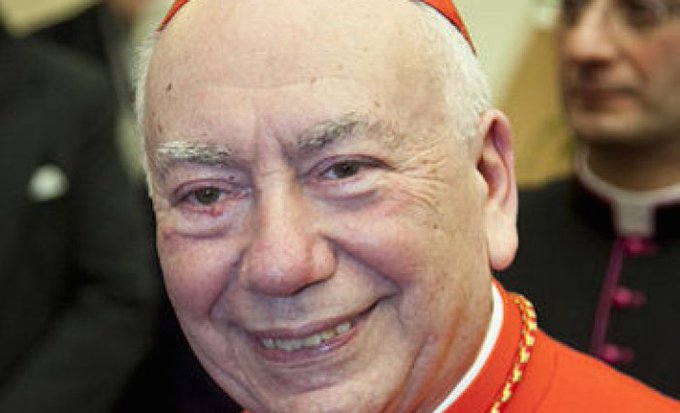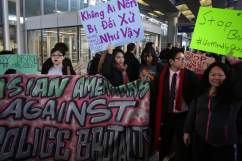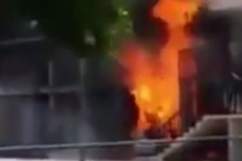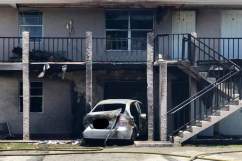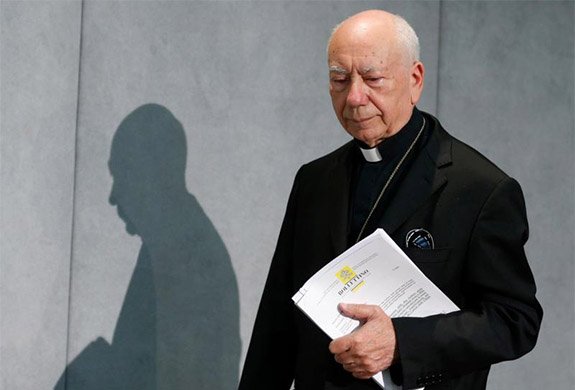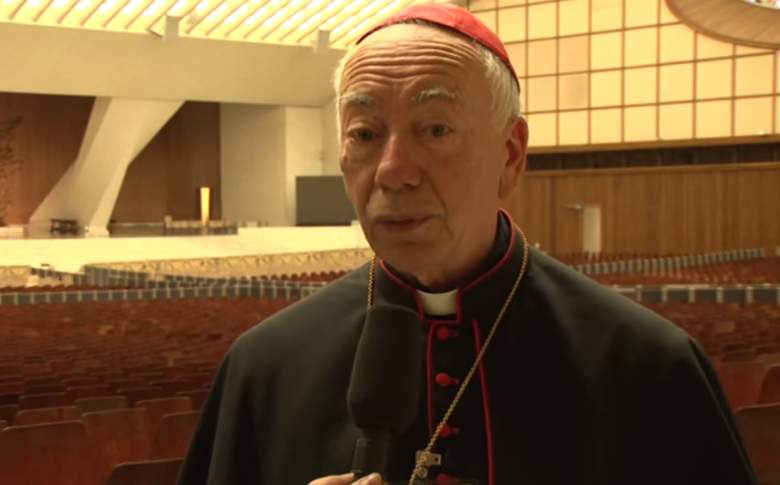
Pope Francis is reportedly “enraged” after Vatican police raided an apartment belonging to the secretary of Cardinal Francesco Coccopalmerio and discovered a drug-fueled gay orgy.
Italian newspaper Il Fatto Quotidiano reported on June 28 that police raided the home after neighbors complained that people were “constantly coming and going” from the entrance of the home in the evening.
The apartment home is typically reserved for “superiors, prefects, presidents or secretaries of the Roman Curia,” not “simple Monsignor,” the newspaper reported. The luxury vehicle that was given to the secretary, with a Holy See license plate, was often used as cover to transport the drugs without being stopped by police.
Coccopalmerio’s 50-year-old secretary of duties is named Luigi Capozzi. Reports say that partly because of the raid, Pope Francis “has decided to accelerate the retirement” of the 79-year-old Coccopalmerio, who serves as the president for the Pontifical Council for Legislative Texts in addition to many other congregations.
Here’s what you need to know about Coccopalmerio:
1. He Was Appointed by Pope Benedict in 2007
With a vast background in Catholicism, Coccopalmerio was given the title of Archbishop and was subsequently appointed to the position of President of the Pontifical Council for Legislative Texts. He was selected to serve in the roles by Pope Benedict XVI, who made it known that one of his most important responsibilities would be to revise Canon Law and how the church handles sex abuse by clergy.
“We want to make this delicate material more accesible, more understandable and easier for bishops to apply,” Coccopalmerio said in 2014, speaking of Book VI: Sanctions in the Church. “In the face of a negative action, which harms the good of a person and therefore the good of the church, penal law expects a reaction, that is the pastor inflicting a canonical penalty.”
2. Controversy Arose in 2009 When Coccopalmerio & Others Ignored the Holocaust Beliefs of a Bishop
In January 2009, Pope Benedict lifted the excommunications of four church leaders of the Society of Saint Pius X. Media reports said that Coccopalmerio was one of four senior cardinals who helped in the decision.
However, he received criticism when it was revealed that one of the four men, Bishop Richard Williamson, was a Holocaust denier.
Williamson gave an interview to a Swedish television station in November 2008 and largely repeated the same statements he made 20 years before in Canada, essentially saying that the Nazis didn’t use gas chambers. He added that the number of Jews that died in concentration camps in World War II was somewhere between 200,000 to 300,000.
The National Catholic Reporter said that during meetings about the lifting of the excommunications, the Williamson’s remarks weren’t ever mentioned.
“During the meeting, there was no mention whatsoever of Williamson’s explosive comments on the Holocaust, despite the fact that they had been in circulation for two full days,” the news outlet wrote in 2010 in a review of a book that assessed Pope Benedict’s tenure.
But in an unrelated incident, it was determined that Williamson illicitly ordained a bishop, Fr. Jean-Michel Faure in 2015. Therefore, Williamson was automatically excommunicated from the church.
3. Coccopalmerio Is a Member of the Congregation for the Doctrine of the Faith
On December 23, 2010, Coccopalmerio was appointed by Pope Benedict to become a member of the Congregation for the Doctrine of the Faith.
The congregation is the oldest of the nine of the Roman Curia and was founded all the way back in 1542 to defend the church from heresy. However, it’s responsible for promoting and defending the Catholic doctrine today.
It’s made up of 27 members, 28 consultants and a team of 33 lay theologians and is used to tackle clerical sexual abuse.
Coccopalmerio was appointed on a five-year renewable term and re-appointed in January 15 by Pope Francis. In doing so, the Pope named Coccopalmerio to a new board that was formed to review appeals from clergy that were found guilty of the sexual abuse of minors.
4. Pope Francis Named Him to a Group Seeking to Speed the Process of Marriage Nullification
Pope Francis has been at the forefront of trying to reform the Catholic Church and dispel from the negative reputation it’s received throughout the past 15 years. One of the things he took issue with when his papacy began in 2013 was the process of marriage annulments in the church. He wanted to speed up the process and reduce the amount of financial costs that are involved when seeking an annulment from the church.
Pope Francis presented the initiative at a press conference in the Vatican on September 8, 2014, and Coccopalmerio was one of the main speakers at the event. He was the only cardinal on the new commission and was tasked to study the annulment process and draft proposals for revision and improvement.
In his statement to the press, Coccopalmerio said that he wanted to make three points in the reforms: Clarification of the annulment concept, outlining significant changes and listing other areas that need further reform, The Jesuit Review wrote.
In February 2017, Coccopalmerio unveiled a short booklet titled The Eighth Chapter of the Post-Synodal Apostolic Exhortation Amoris Laetitia, which lays out the changes to the process.
The provisions allowed for people in irregular marriage situations to have access to sacraments “only if they recognize their situation is sinful and desire to change it,” CatholicNews.com reported.
5. Coccopalmerio Lived in Italy During World War II
Coccopalmerio was born in San Giuliano Milanese, Italy on March 6, 1938 before moving and being raised in his mother’s home town of Sernio, about 115 miles northeast from his birthplace. He had an interest in the Catholic Church since a young age and studied to have a career in it.
According to his biography, he was ordained as a priest in 1962 by Milan Archbishop Giovannia Montini — who later became Pope Paul VI. One year after being ordained, he received a theology degree and then pursued his doctorate in canon law from the Pontifical Gregorian University. He graduated from the school in 1968 and continued studying law.
In 1976, he received a Doctorate in Law from the Universita Cattolica del Sacro Cuore in Milan and held various positions in the Archdiocese of Milan until 1994 as well as being an educator at local schools. He was the professor of Canon Law at the Faculty of Theology for over 30 years and has been a professor of Canon Law at his alma mater, the Pontifical Gregorian University, since 1981.
